"Oh, they're tough, mighty tough, in the west"
I used to read westerns, well maybe for a year or so I read 'em, and in the Campbellian way, read every possible author on the market and analyzed the history of the whole thing. But I got the impression I was supposed to be reading science fiction. The whole 'comics fandom' thing was understood by everybody in it to be a sub category of sci-fi. Then in the seventies it became fantasy. I remember one fanzine defining its content as 'all the stuff we're interested in', and I thought: how would you know what I'm interested in? There was a sense of one thing connecting inevitably to another. I never got that. In fact, I've never got the idea of 'genre fiction' either. I mean, as a thing to which you pledge some kind of allegiance. Anyway, for a year, Westerns were for me. I spent an hour this morning trying to google up the cover of a book I owned way back when I was fifteen.

It wasn't easy because I couldn't even remember the author's name. All I could recall is that it was painted by Gino d'Achille. It was in '69, a few years before he came to the attention of American collectors with his painted covers for the Edgar Rice Burroughs books. Looking at those now, I care for none of them. But I did find my cover in the end and I still love it as much as when I once owned that little paperback written by Matt Chisholm. A British writer of westerns (real name peter Christopher Watts), with a painted cover by an Italian; indeed, isn't that cover just saturated with the stylings of the spaghetti western.
The Comic book was my customary means of expression, so I took Chisholm's Apache rogue, Gato, and drew a couple of 13 page stories around him, in full colour. This was in 1971. Don't expect more than juvenlia here, and by the end of the second story it's starting to look too much like Buscema's Conan (perhaps I had shifted my genre-allegiance by then.) Also, and alas, I had a habit then of drawing the action scenes as though I was taking part in them. It was many years before I'd learn to take pains over all aspects of the work. Still, one or two pages show a little promise.

I only located the links for Chisholm (whose name I had forgotten) due to the fact that I named one of the characters in this story after him.
The Black Diamond Detective Agency (my upcoming book from First Second Books- see yesterday's post) is not really a western, but it starts quite westerly, in Missouri in 1899, and then shifts to Chicago and becomes a gangster story (if you need to understand fiction in these terms). It's really more about the arrival of the train than the fate of the horse, but I find it interesting that I seem to have subconsciously remembered that horse from the cover above when i drew this silent sequence in Diamond. If I'd been more conscious of it, I'd have made more of the horse no doubt, perhaps going so far as to swipe that perfectly observed leg in the air in the d'Achille painting. But then I'd have been too ashamed to show the original here.

The title of this post comes from a 1937 hit sung by British jazzman Nat Gonella
"Oh, they're tough, mighty tough, in the west,
and their beards are thicker than an eagle's nest.
Their dentists have bad manners
and they pull out teeth with spanners..."
I have for a long time been of the opinion that this song was the inspiration for the British comic strip character Desperate Dan, which started in december of the same year.

It wasn't easy because I couldn't even remember the author's name. All I could recall is that it was painted by Gino d'Achille. It was in '69, a few years before he came to the attention of American collectors with his painted covers for the Edgar Rice Burroughs books. Looking at those now, I care for none of them. But I did find my cover in the end and I still love it as much as when I once owned that little paperback written by Matt Chisholm. A British writer of westerns (real name peter Christopher Watts), with a painted cover by an Italian; indeed, isn't that cover just saturated with the stylings of the spaghetti western.
The Comic book was my customary means of expression, so I took Chisholm's Apache rogue, Gato, and drew a couple of 13 page stories around him, in full colour. This was in 1971. Don't expect more than juvenlia here, and by the end of the second story it's starting to look too much like Buscema's Conan (perhaps I had shifted my genre-allegiance by then.) Also, and alas, I had a habit then of drawing the action scenes as though I was taking part in them. It was many years before I'd learn to take pains over all aspects of the work. Still, one or two pages show a little promise.

I only located the links for Chisholm (whose name I had forgotten) due to the fact that I named one of the characters in this story after him.
The Black Diamond Detective Agency (my upcoming book from First Second Books- see yesterday's post) is not really a western, but it starts quite westerly, in Missouri in 1899, and then shifts to Chicago and becomes a gangster story (if you need to understand fiction in these terms). It's really more about the arrival of the train than the fate of the horse, but I find it interesting that I seem to have subconsciously remembered that horse from the cover above when i drew this silent sequence in Diamond. If I'd been more conscious of it, I'd have made more of the horse no doubt, perhaps going so far as to swipe that perfectly observed leg in the air in the d'Achille painting. But then I'd have been too ashamed to show the original here.

The title of this post comes from a 1937 hit sung by British jazzman Nat Gonella
"Oh, they're tough, mighty tough, in the west,
and their beards are thicker than an eagle's nest.
Their dentists have bad manners
and they pull out teeth with spanners..."
I have for a long time been of the opinion that this song was the inspiration for the British comic strip character Desperate Dan, which started in december of the same year.
Labels: black diamond, western
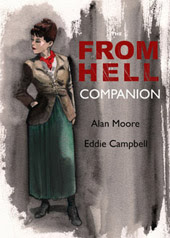
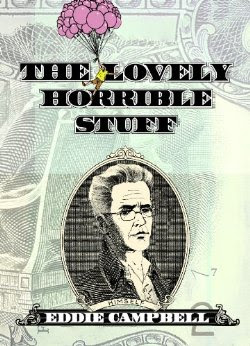

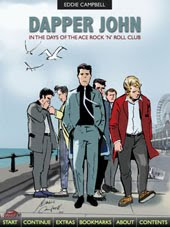
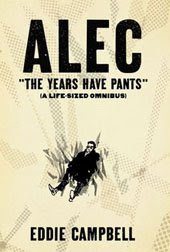
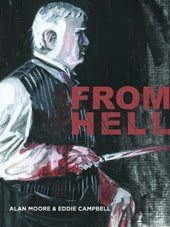
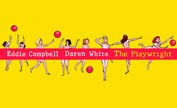
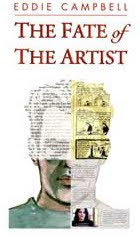
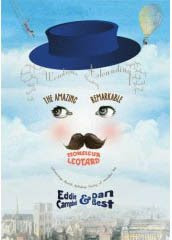
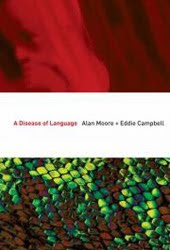
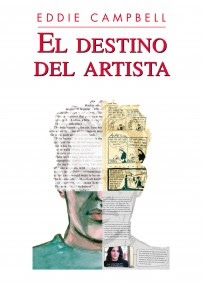
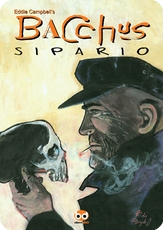
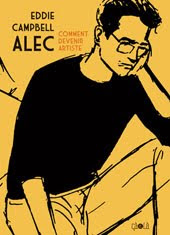

13 Comments:
"Sudden death stalked the violent hills"
Oh, that's beautiful!
Comics, a subset of Sci-Fi ?
That's a new one.
Mind you, that would explain the thing about Jean Giraud, who writes/draws Sci-Fi comics under the name of Moebius and western comics under the name of Gir...
ripum ?
thanks for commenting, Nathalie
but let me check that...
yes, I did say that comics 'Fandom', not comics, was seen as having come out of sci-fi 'fandom'. i.e. The communities of people who collected comics also collected sci-fi (and then fantasy was big). The first conventions were organized by people who were habitues of sci-fi conventions. The first comics specialty shops carried comics and sci-fi. they didn't carry westerns and romances. never.
after comic books were a mass medium, they became one of the 'geeky genres'.
drJon. You'll confirm that for me, yes?
That is my understanding. The first panelologists to organise conventions were influenced--or cut their teeth--on SF conventions. For example, the first San Diego Comic-Con had noted SF Fan and publisher Forrest J Ackerman as its guest.
SF Fandom has a lot to answer for ;})>
of course, it's true to say that in France there were other elements in the mix, but the sci fi origins do go a long way to explaining the narrowness of subject matter in the American comic books. (which is breaking down a great deal over the last ten years, perhaps mostly inspired by the manga model, but one needs to understand how things got the way they did).
It's always fascinated me the way there was a complete paradigm shift (for want of a better term...) in genres sometime in the early to mid-60s, with everything being marketed to kids switching from the Wild West to outer space. Partly to do with all the NASA activity, I think, the Apollo missions especially. Gerry Anderson is a good example, starting out with Four Feather Falls (which I never saw because it wasn't repeated) then quickly switching to Supercar and Fireball XL5 (which were repeated regularly).
When I was a kid (late 60s/early 70s) I often wondered why there were so many western series on TV (The Big Valley, The Virginian), most of which I wasn't remotely interested in. Space and sf seemed a lot more exciting, I knew all the names of the Apollo astronauts the way kids now (and also then, of course) would know the names of football players. Sergio Leone changed all that but I didn't see any of his films until much later.
I think the French have a keener appreciation of genres across the board, whether that's sf, fantasy, horror, detective fiction or westerns. They seem less concerned by trends outside the country so genres that may be failing elsewhere have a longer shelf life. The French picked up on HP Lovecraft (and other horror writers), for example, years before his popularity spread worldwide. Same goes for the French interest in detective stories which helped identify and brand an entire sub-genre of American cinema--film noir.
You're completely right there, John.
I guess I'm about ten years before you then, a kid in the late fifties and early sixties. My favorite Gerry Anderson was Stingray and nothing after that ever held my attention, not even Thunderbirds. A lot of stars who were big in the late sixties and seventies were all in tv cowboy series at the beginnings of their careers, like James Garner (maverick) and Steve McQueen (Wanted Dead or Alive) , and Clint Eastwood (Rawhide) (the ones you mention are later watered down versions of the great tv western... for later examples, the High Chapparal sat very well with me). As you say, it all shifted. There was a later shift that I didn't like at all. In the mid seventies everything seemed to shift to Horror. The huge movies were the Exorcist and the Omen. In comics perfectly good characters were changed into horror figures, like the Beast from the X-men. that's when he got that evil looking body hair. I always hated swamp thing and only just tolerated it when Alan Moore was writing it. And worst of all, the western could only survive if somehow cannibalism or zombies could be brought into it (Like Lansdale's books) (and Jonah Hex in the comics). Like yourself, I love the work of Lovecraft, but I felt that Horror was reduced to the cheapest shit imaginable.
"I am the literary equivalent of a Big Mac and fries."
- Stephen King
Yes. I forgot about King. He rode that very wave. His first novel was published in '74 yes? Carrie, followed by the Shining and the Dead Zone, '75, '.76. I've never been able to read KIng, but I'd certainly admit that he was the 'king' of the horror genre that got its turn at the top of the heap in the '70s.
here's another. rock star Alice Cooper, who had his first mainstream success with 'School's Out' in 1972.
I hate it all.
I'm quite prepared to admit I've missed the point somewhere, and I've nothing against you lot liking it, just don't bring it round here, because i won't open the door.
(God knows why Bissette and Moore thought I'd be up for drawing a book about Jack the bleedin' Ripper! God only knows!)
I'm led to understand that one of the main reasons that Gerry Anderson went for sci-fi was that he could then have the characters riding/driving around in vehicles (like those aero-bikes in Fireball XL5, or Commander Shore's pseudo-wheelchair in Stingray), and not have to worry about having them walk - which anyone who's seen them will agree was one of their less convincing aspects.
cheers
B Smith
and never mind the horses!
(I can't even picture it...Four feather Falls)
I can't believe there is a Gerry Anderson discussion without chalky chiming in, only a matter of time.
-Duds
I think I only ever saw a clip or two of Four Feather Falls. Seem to remember something as clunky as the cowboy puppet show in Toy Story 2.
I was born in 1962 Eddie, and I've found this generational aspect to be very striking, friends a few years older invariably have a nostalgic fondness for westerns that missed our lot altogether. Another friend my age once said about those horribly bland TV series (The Big Valley et al) that he could never work out where they were situated historically. Most of them are devoid of any contemporary reference; all are obviously in the past since everywhere has gas lighting and steam trains but there's none of the signifiers that say "Victorian England" if it was London in the same period. Things are confused further when all the men have 50s/60s quiffs!
Yes, horror hit big in the 70s. There were some benefits (in the UK at least) since publishers like Panther put writers like Lovecraft, William Hope Hodgson, Arthur Machen, Clark Ashton Smith and others into paperback. Many of the Machen and CAS books haven't been so easily available since then, in fact CAS remains largely out of print (he's fantasy for the most part but he caught the wave).
This discussion reminds me of another genre, the war story! It's bizarre now looking back at British comics and seeing how many of them had token war stories just as they'd have token football stories. That's before you even get to the specialist titles like Commando:
http://www.britishcomics.20m.com/pocket.htm
Post a Comment
Subscribe to Post Comments [Atom]
<< Home